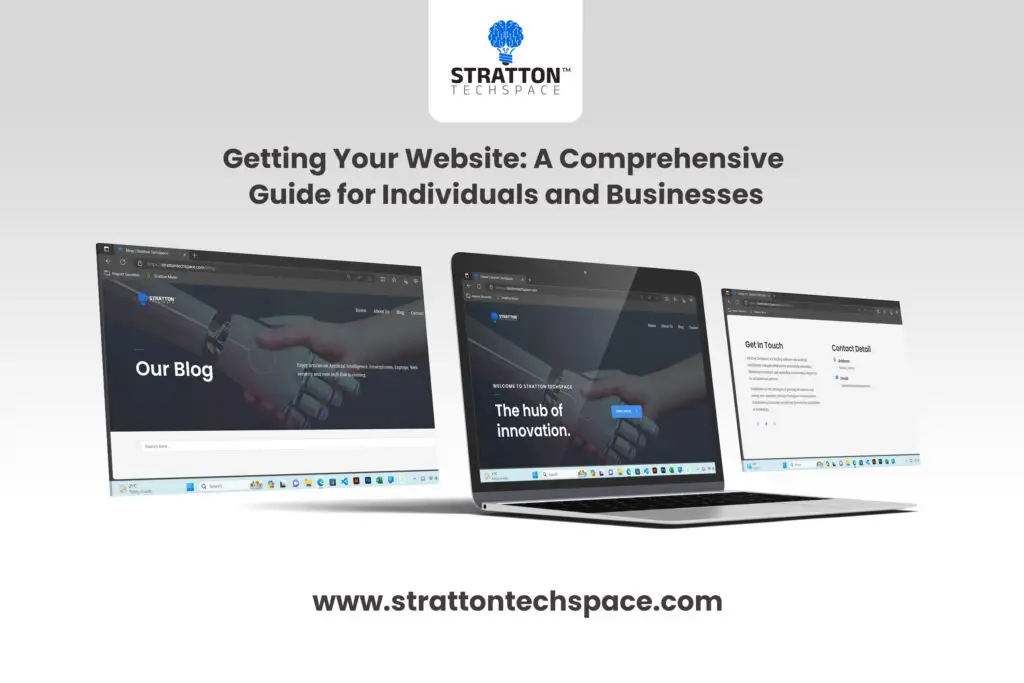In the digital age, a website is crucial for personal branding and corporate expansion. Whether you’re an individual trying to promote your portfolio or a corporation looking to develop an online presence, there are some important measures to take before plunging into the realm of website creation.
1. Define Your Purpose and Goals
Before embarking on the website creation journey, clearly define the purpose and goals of your website. Whether it’s to promote your skills, sell products, or share information, having a clear objective will guide the design and content creation process.
2. Choose the Right Domain Name
Selecting the right domain name is like choosing a business name – it should be memorable, reflective of your brand, and easy to spell. Ensure it is relevant to your content or business and aligns with your overall branding strategy.
3. Understand Your Target Audience
Knowing your target audience is crucial for tailoring your website content and design to meet their expectations. Consider their preferences, interests, and browsing habits to create a user-friendly experience.
4. Select a Reliable Web Hosting Provider
Choosing the right web hosting provider is a critical decision. Consider factors such as server reliability, customer support, and scalability. Reliable hosting ensures your website is accessible, secure, and performs well.
5. Plan Your Website Structure and Navigation
Map out the structure of your website, including the main pages and their hierarchy. Intuitive navigation is key to a positive user experience. Make it easy for visitors to find the information they’re looking for.
6. Content is King: Develop Quality Content
Create engaging and relevant content for your website. Whether it’s informative articles, product descriptions, or a captivating bio, quality content is essential for attracting and retaining visitors.
7. Choose a Responsive Website Design
Opt for a responsive design that adapts to different screen sizes. With the increasing use of mobile devices, a mobile-friendly website is crucial for a positive user experience and search engine rankings.
8. Integrate SEO Best Practices
Implementing search engine optimization (SEO) strategies is vital for improving your website’s visibility on search engines. Research relevant keywords, optimize meta tags, and focus on creating valuable, shareable content.
9. Incorporate Security Measures
Security is paramount for websites, especially if handling sensitive information. Install security plugins, use secure passwords, and keep software up to date to protect against potential threats.
10. Set Up Analytics
Integrate analytics tools such as Google Analytics to track your website’s performance. Analyzing visitor behavior provides insights into what’s working well and areas that may need improvement.
Frequently Asked Questions (FAQs)
Q1: How much does it cost to build a website?
The cost of building a website varies based on factors like complexity, features, and whether you hire professionals. DIY platforms may have lower upfront costs, while custom-built websites by professionals can range widely.
Q2: Can I update my website content myself?
Yes, many website platforms offer user-friendly content management systems (CMS) that allow you to update and modify content without technical expertise.
Q3: How long does it take to build a website?
The timeline for building a website depends on its complexity. Simple websites can be created in a few days, while more complex sites may take several weeks or even months.
Q4: Is website maintenance necessary?
Yes, regular maintenance is crucial for keeping your website secure and up to date. This includes updating software, checking for broken links, and refreshing content.
Q5: What role does social media play in website promotion?
Social media is a powerful tool for promoting your website. Share content, engage with your audience, and drive traffic by strategically leveraging platforms relevant to your target audience.
Q6: How can I get a website?
Getting a website highly depends on your location and skillset. If you are in Malawi for example, you can get companies like Ourself ( S Techspace), Stratton Creations and OpenTech among others to build one for you. This will ensure that you don’t worry about the technicalities of building a website.
In conclusion, launching a website requires careful planning and consideration. By defining your goals, understanding your audience, and implementing best practices in design and security, you set the foundation for a successful online presence. Whether it’s a personal blog or a business site, a well-thought-out website can be a powerful asset in today’s digital landscape.



